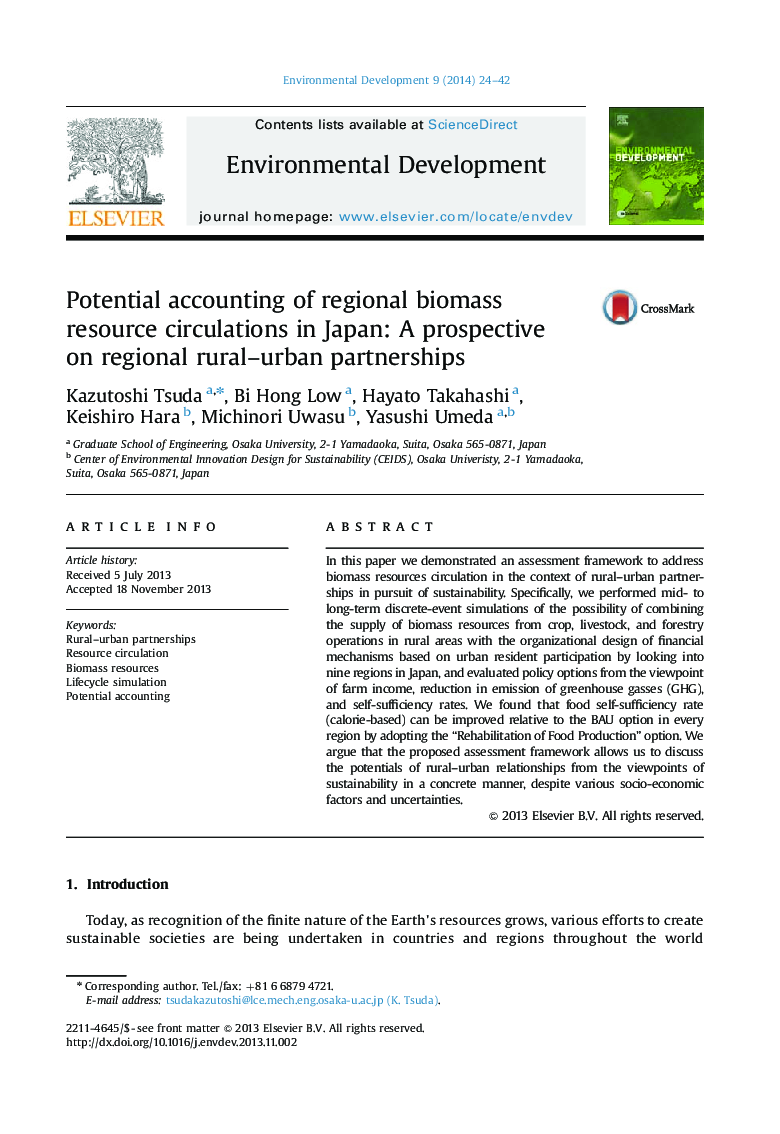| Article ID | Journal | Published Year | Pages | File Type |
|---|---|---|---|---|
| 6302972 | Environmental Development | 2014 | 19 Pages |
Abstract
In this paper we demonstrated an assessment framework to address biomass resources circulation in the context of rural-urban partnerships in pursuit of sustainability. Specifically, we performed mid- to long-term discrete-event simulations of the possibility of combining the supply of biomass resources from crop, livestock, and forestry operations in rural areas with the organizational design of financial mechanisms based on urban resident participation by looking into nine regions in Japan, and evaluated policy options from the viewpoint of farm income, reduction in emission of greenhouse gasses (GHG), and self-sufficiency rates. We found that food self-sufficiency rate (calorie-based) can be improved relative to the BAU option in every region by adopting the “Rehabilitation of Food Production” option. We argue that the proposed assessment framework allows us to discuss the potentials of rural-urban relationships from the viewpoints of sustainability in a concrete manner, despite various socio-economic factors and uncertainties.
Keywords
Related Topics
Life Sciences
Environmental Science
Ecology
Authors
Kazutoshi Tsuda, Bi Hong Low, Hayato Takahashi, Keishiro Hara, Michinori Uwasu, Yasushi Umeda,
